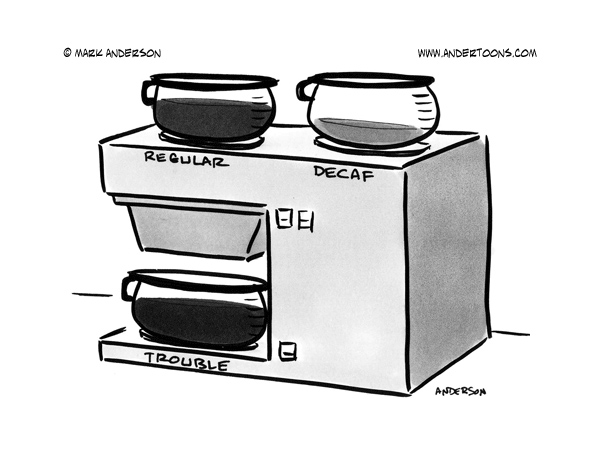If you’re like the majority of people, there are two major influencers on your day: time and coffee. Think about it. People having been talking about time for centuries—you can find a quote about it everywhere from Sophocles and Shakespeare to Yoda and Stephen King. You’d be hard pressed to find someone who felt they had enough hours in the day or that the years were taking forever to go by. Likewise, coffee is a hot ticket item in everything from discussions and debates such as who makes the best brew, the ever-changing effects of deprivation or overindulgence, and the latest seasonal infusions to be introduced to social media postings and musings like Instagram shots of latte foam “art”, memes depicting the before and after effects of consumption, or Pinterest posts of DIY Frappuccino recipes. Of course, the invention of the Keurig Coffee System, and its impressive success, really shouldn’t have been such a surprise when you consider these two factors. Who’s going to turn down a coffee fix that saves time? Two birds, one stone. In all the excitement, no one stopped to consider just how much, or really, how little, time they actually save, or, as you’ve probably seen in the news, the disastrous effects these seemingly harmless little cups would have on the environment.
Since the cups are not recyclable, they are filling up our landfills. According to MotherJones.com, in 2013 there were enough K-Cups produced to circle the equator ten and a half times! As popularity in the time saving machines grows, so does the number of times those cups go around the equator. While this may sound alarming, sales indicate that consumers are just not willing to part with their beloved coffee pods, allowing cost and convenience to stay at the forefront of production efforts rather than environmental concerns. Thanks to a team of scientists from the University of British Columbia’s composite research network and Vancouver based company G-Kup, all of that’s about to change.
Darren Footz, G-Kup Coffee CEO, says they have patented a compostable and biodegradable replacement to the K-Cup. Made from sugar cane and bamboo with a biodegradable polymer lining, the G-Kup is designed to stand up to the extreme heat involved in brewing without compromising taste or convenience. To ensure the pods don’t leak chemicals or sacrifice taste or quality, UBC’s researchers are helping to develop the pods with the hope they can develop something people actually use that is also good for the environment. So far studies show complete degradation of the G-Kup within 30 days, and the company’s instagram account depicts a time-lapse of the pods composting in a home composter for six weeks. This is in astounding contrast to the existing pods, the majority of which are made by Green Mountain Coffee, which will most likely still be kicking around the landfill 10, 000 years from now.
G-Kups are expected to be perking up your day by 2016 if all goes according to plan, and with other companies like Club Coffee in Toronto challenging the current single serve coffee game, we’re sure it won’t be long before the Java your sipping at Mission LED was brewed in a 100 percent compostable coffee pod.
About The Author

-
Serial Entrepreneur, Technologist and Inventor.
My objective is to develop useful products that have a net positive effect in the lives of those that use them and the environment that we live in.
CEO of Mission LED Lighting Company Ltd.
- 2017.05.24LED factsWhy Are Cars Switching to LEDs if They’re Too Bright?
- 2017.05.09Be green & saveHow to Easily Replace T8 Fluorescent Tubes With LED
- 2017.03.07Build a better future7 Things About Explosion Proof LED Lighting You Should Know
- 2017.02.28Be green & saveWhy We Love LED Grow Lights (And You Should, Too!)





Leave a Reply